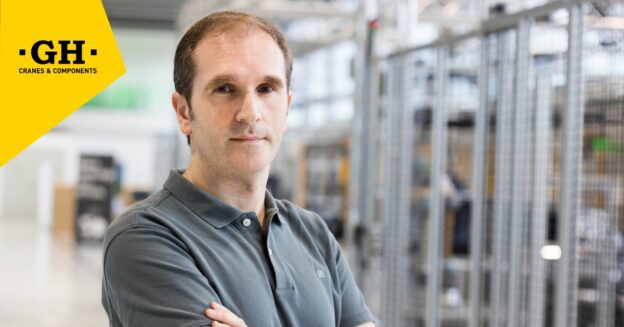When artificial intelligence began to gain prominence, GH did not hesitate to turn to IKERLAN, its trusted technology partner. This centre has a solid track record and a team of top-level professionals, including JOSU BILBAO, director of the Digital Technologies and Artificial Intelligence Unit.
At GH News we decided to interview him to get his views on the impact of AI, the challenges it poses and how companies should adapt to this technological revolution.
AI has become a hot topic in recent years, but how long has this technology been around?
Although Artificial Intelligence is on everyone’s lips today, it is a technology, or field of expertise, that has been in development for decades. AI as such was first talked about as early as the 1950s. However, over the years, AI has had its ups and downs, what we call “technology winters”, periods when market expectations were not met and development slowed down. Now, however, we are in a new AI “spring”.
In your opinion, what has driven the resurgence of AI in recent years?
I believe that AI is one of the greatest revolutions of our era, and this is due to the convergence of several factors that have made its recent emergence possible.
Firstly, thanks to the development of Industry 4.0 (where companies like GH have played an important role) we have products and processes that generate and capture crucial data for training AI models. In addition, we now have access to hardware capable of training and querying complex AI models, something that was virtually unattainable just a few years ago. And finally, AI itself has evolved with the emergence of new architectures, such as Transformers, which have given rise to the now popular Large Language Models (LLMs). In short, this confluence of factors has created an unprecedented scenario that is driving Artificial Intelligence in an extraordinary way.
Despite this, do you think there is still scepticism within the scientific and technological community? What would you say to the sceptics?
At centres like IKERLAN, where we all have an affinity for technology, we tend to view the potential of AI with optimism, but there is no doubt that areas such as ethics, transparency, reliability and responsibility still require a huge amount of work to accompany the peak of AI development.
Scepticism comes with any new revolution. Fifty years ago, the philosophical currents of the time were also concerned about the risks of what they then called “cybernetics”. Part of society feared that it would be the main threat to humanity. In the coming years we will have to take firm steps from different sections of society. Experts from the fields of technology and the humanities will have to work synergistically to explore the benefits and risks that need to be considered.
That said, it is true that some senior researchers, especially those who have lived through the AI “winters” mentioned above, tend to be more cautious about the momentum and evolutionary optimism that seems to be reflected in the media lately. In any case, I believe that AI is here to stay and that it will transform our lives significantly, which will require us to adapt.
“The GH management has shown outstanding sensitivity to Technological trends”
What is your main advice to companies wishing to adapt to this new reality?
The most important thing is not to look the other way. It is essential that companies analyse both the opportunities and risks of AI from the highest levels of the organisation, such as management committees. In my view, ignoring this technological revolution could be a costly mistake.
To integrate AI effectively, it’s essential to understand how it can be applied strategically within the company. In this regard, open innovation models, such as the collaboration between GH and IKERLAN, are key to integrating the necessary knowledge and responding to the challenges of AI.
As for GH, how do you see the company’s positioning in the fieldof AI?
GH has great potential in this field, especially because it has already taken important steps in data capture and the integration of advanced technological solutions. The GH management has shown outstanding sensitivity to technological trends, which will enable them to integrate AI into their products and processes effectively. In the future, we’re likely to see GH developing cranes and other products with a higher degree of autonomy and decision-making capabilities thanks to AI.
Speaking of decision-making, do you see this as one of the critical points in the development of this technology?
Absolutely. One of the main challenges is to make AI reliable, especially when it starts to make critical decisions on its own. This requires systems to be auditable, and the ability to understand how and why certain decisions are made. In Europe, there is a considerable focus on ethics, which in some cases may slow down development, but ensures that technological solutions are safe and ethical.
Finally, will this revolution you are talking about be gradual or is it closer than it seems? The transformation will be gradual, but profound. AI will become more and more naturally integrated into our lives. On a societal level, we’ll see major changes in the coming decades, both in the labour market and in our daily interaction with technology. It will be a process of adaptation, but I’m convinced that it will bring further progress.
